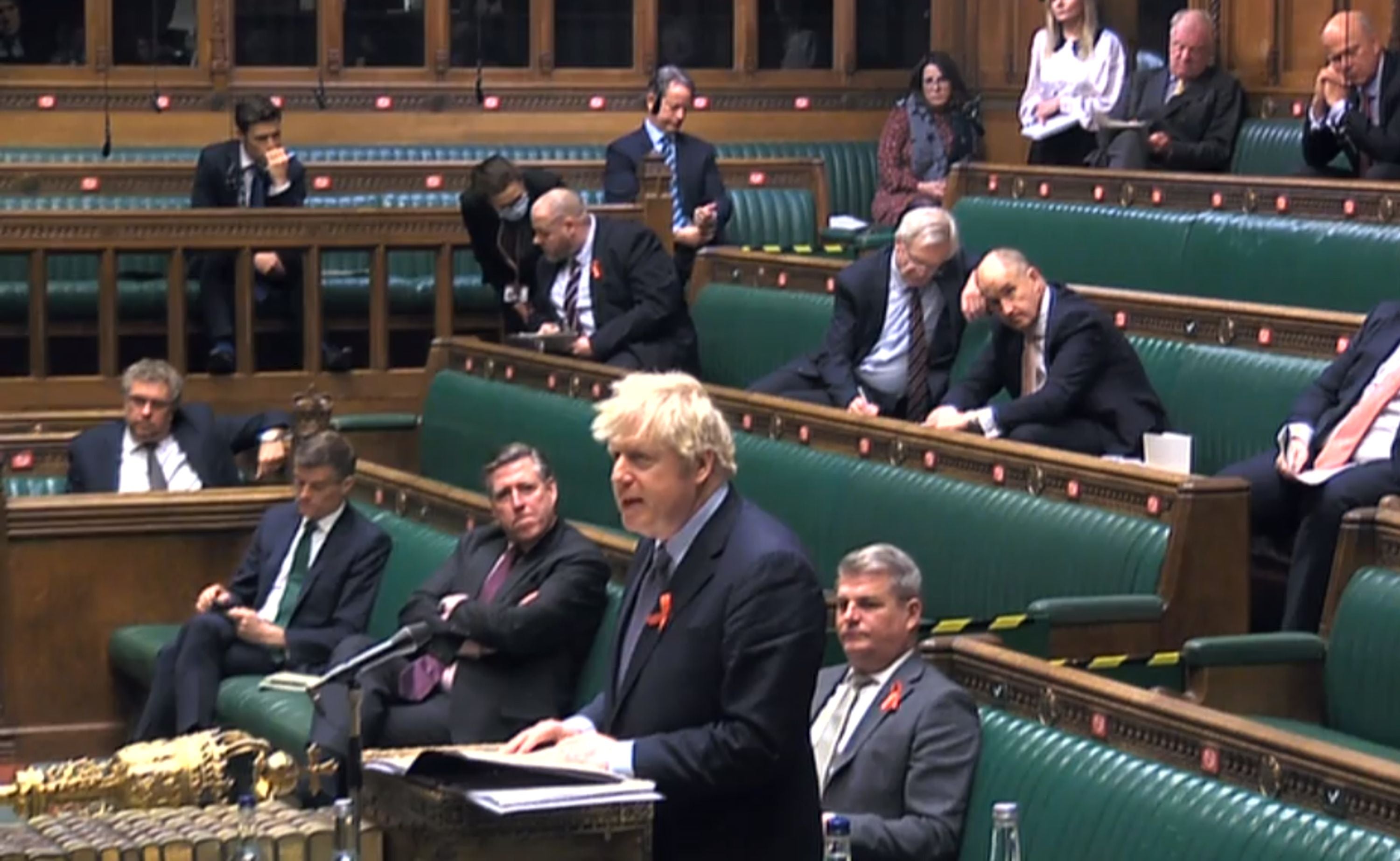Coronavirus rebellion shows Tory MPs unwilling to act as lobby fodder
Despite his comfortable majority, the prominence of special-interest groups show his power is not what it seems. Andrew Woodcock explains


It wasn’t meant to be like this.
When Boris Johnson scooped a comfortable 80-seat majority in last December’s general election, all seemed set fair for a lengthy period of untrammelled power with no need to fear opposition from the House of Commons to the deep changes he was planning for Britain.
With the dominance granted by his ability to order his troops through the Commons lobbies, Mr Johnson was expecting to be able to govern virtually by fiat, able to swat aside protests from the diminished Labour and Liberal Democrat opposition.
Instead, a year on from his moment of triumph, the prime minister finds his party increasingly fractured into different interest groups and his ministers reduced to making concessions to buy off rebels who scorn the pronouncements of their supposedly all-powerful leader.
From one side, an estimated 50 backbenchers in the Northern Research Group issue demands for the fulfilment of promises to “level up” the disadvantaged communities in the former “red wall” seats which they seized from Labour in the north and Midlands.
From another, the prime minister faces anger from the Covid Recovery Group – apparently representing 70 Tories, though only two were willing to make their names public – chafing at the restrictions to social and economic life he has imposed in the fight to rid Britain of coronavirus.
Their defiance of Johnson was on open display in Tuesday’s debate on the end of lockdown, when only Labour abstention assured the prime minister of being able to implement the new system of regional restrictions at the heart of his strategy for defeating coronavirus.
Meanwhile, a China Research Group is keeping a beady eye on the prime minister’s approach to the far eastern economic giant, piling on pressure for him to root Huawei out of the UK’s telecommunications system and exercise caution on Chinese investment in UK infrastructure.
Remaining rather more in the background is the One Nation caucus of quietly pro-European Tories holding on to hopes of a closer future relationship with Brussels to make life easier for business after Brexit.
And looming behind everything are the European Research Group, the most successful single-interest group in recent Tory history, which claimed the scalp of Johnson’s predecessor Theresa May while guiding the government towards an ever more extreme version of Brexit which has brought the country to the brink of no deal.
In many ways it is the example of the ERG which has set the tone for Mr Johnson’s premiership so far.
MPs aware of the limited prospects for career advancement from the crowded Tory benches have eyed the ERG’s successes as an indication that it is possible to achieve more by truculent opposition than by dutifully obeying orders from the top.
Meanwhile, the increasingly assertive devolved administrations in Scotland and Wales, and the elected mayors in their metropolitan fastnesses, have set a template for conflict with London which has been taken up by English MPs acting as tribunes not only for their constituency but for their region.
It has left the PM in a position where rebellions on a scale to threaten his agenda have become a realistic prospect in a way that seemed improbable at the time of his election victory.
The process has been sped by Mr Johnson’s decision on arrival at No 10 to frame his administration as “continuity Vote Leave”, surrounding himself with trusted comrades from the EU referendum battle and excluding alternative points of view even from his own MPs.
While internal frictions within Downing Street played an important role in the defenestration of his close advisers Dominic Cummings and Lee Cain, the crisis was also fuelled by open dissent from even more Tory MPs who felt excluded from their own government.
The PM now hopes that a “reset” can restore his authority by reassuring his MPs that he respects their opinions. But it may be too late to persuade backbenchers who have learnt how to flex their muscles that it is now time for them to resume their traditional role as lobby fodder.


Join our commenting forum
Join thought-provoking conversations, follow other Independent readers and see their replies
2Comments